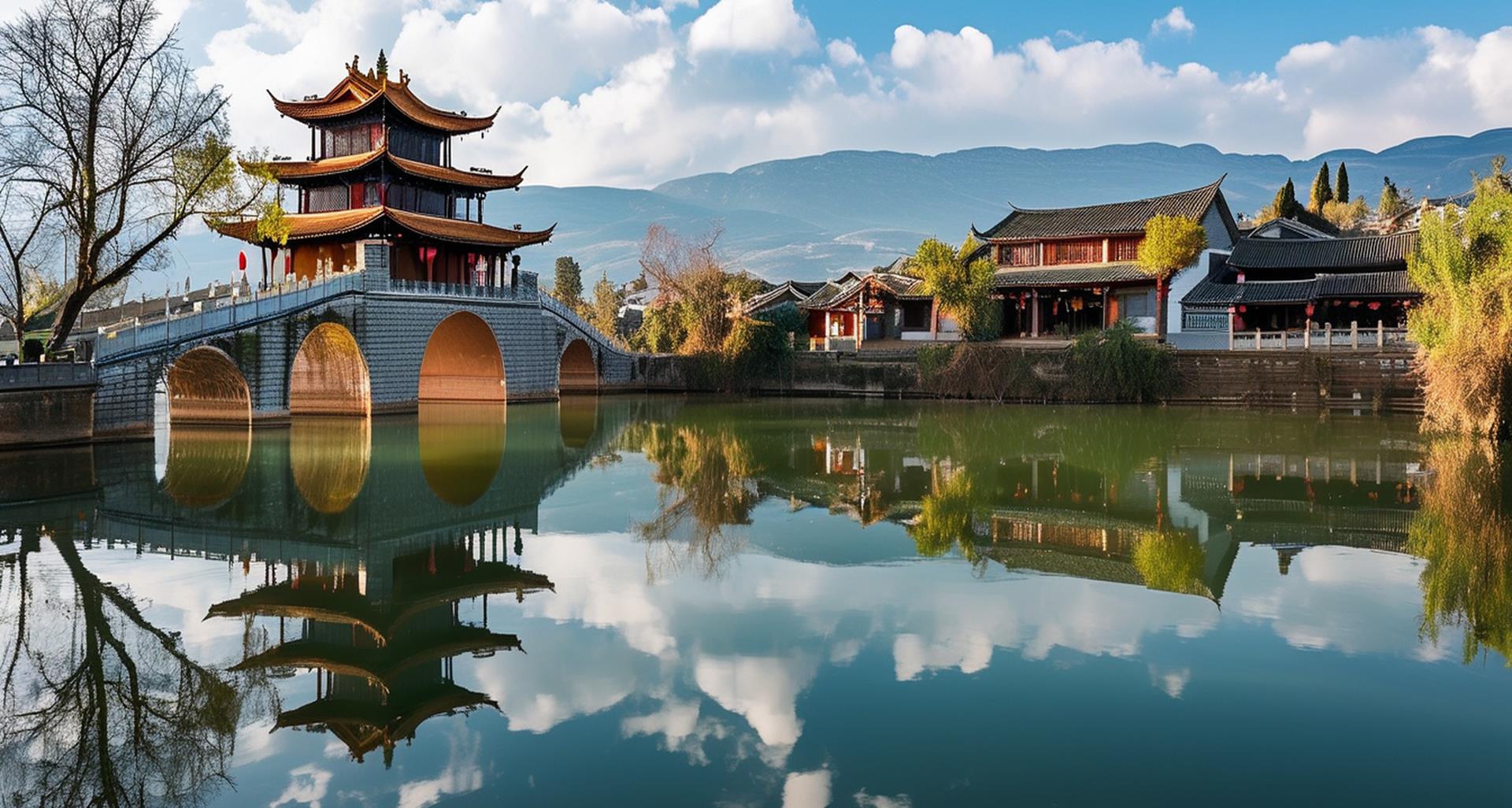Jingmai Mountain – A World Heritage Site of Yunnan_02
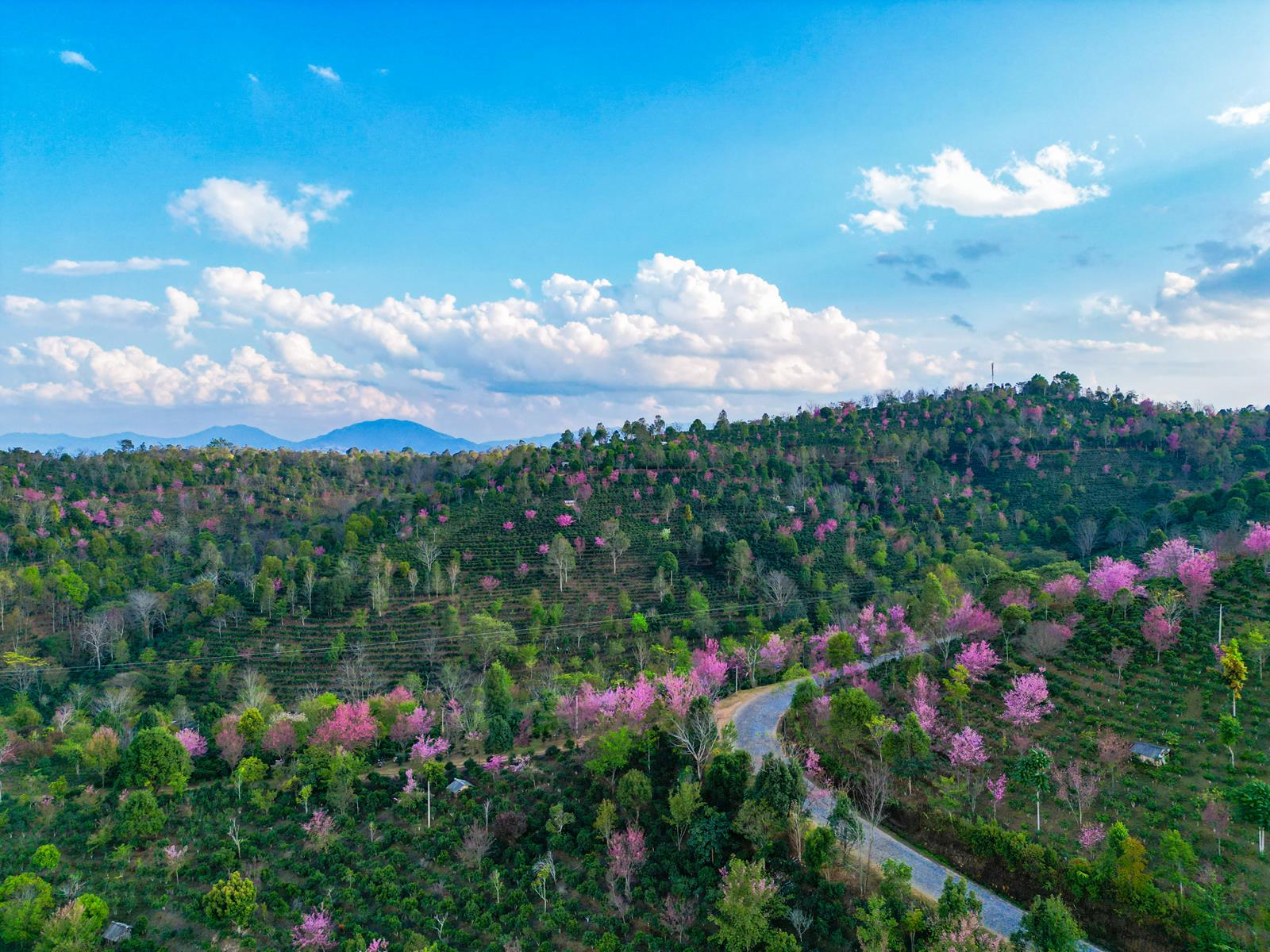
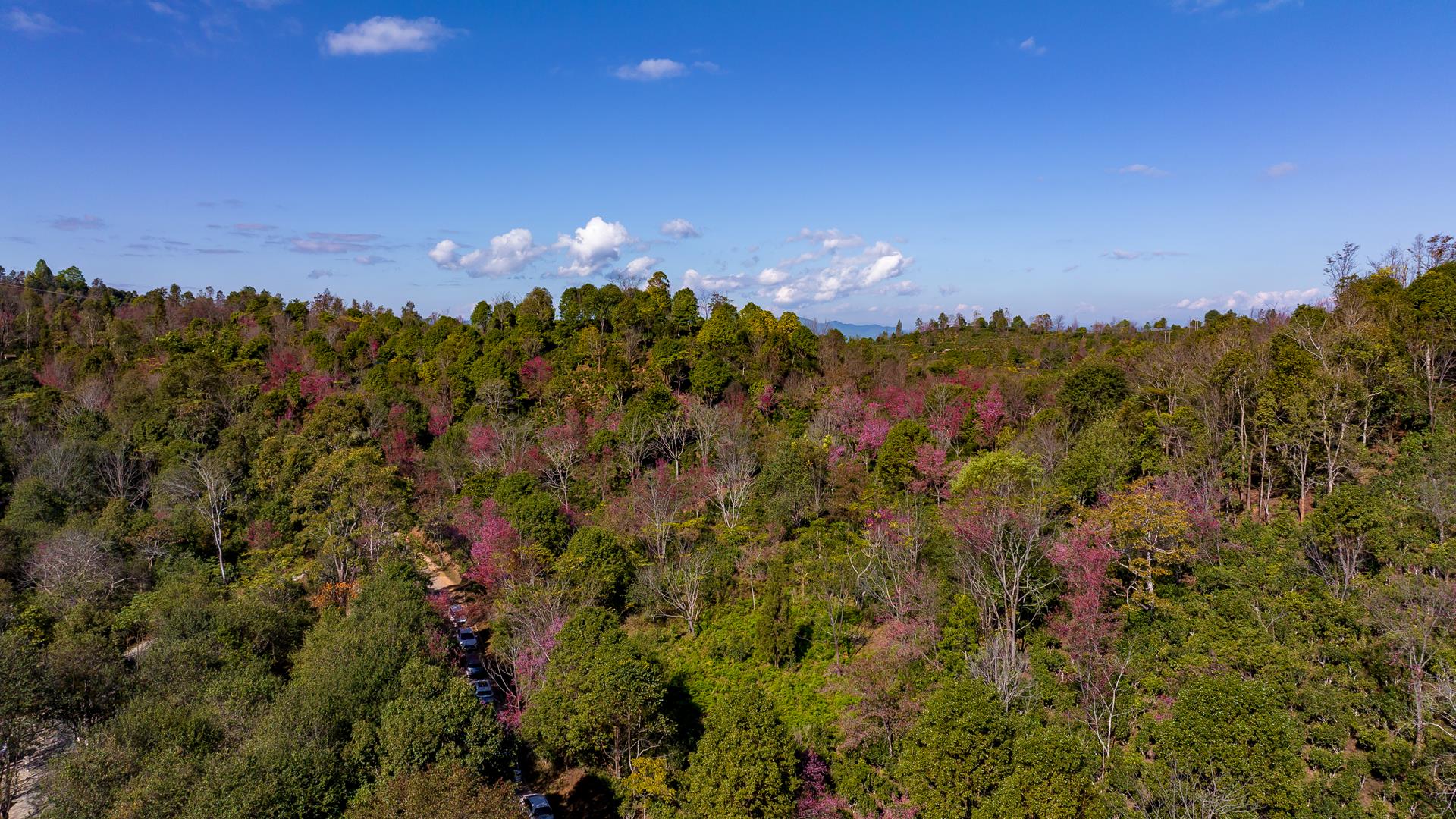
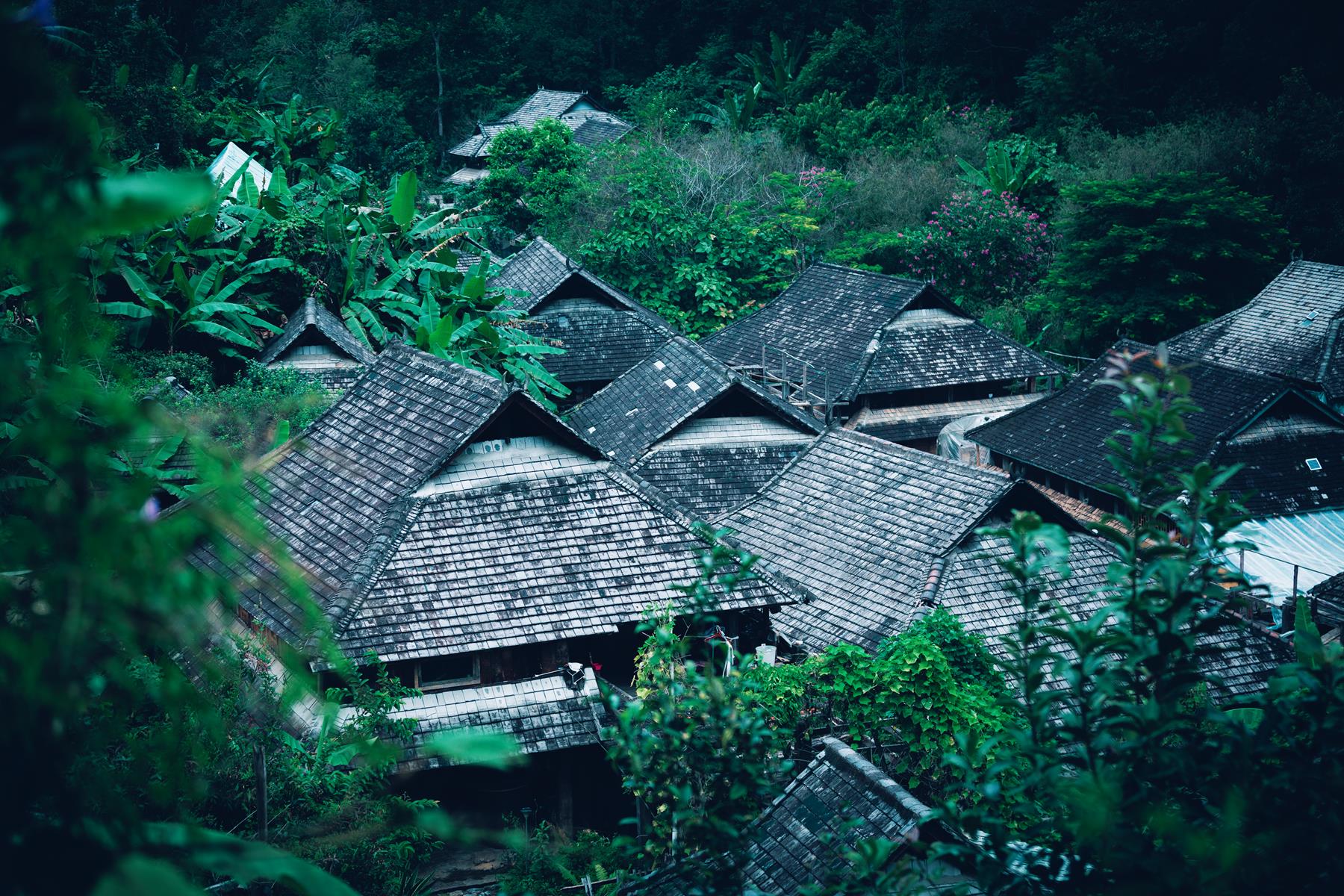

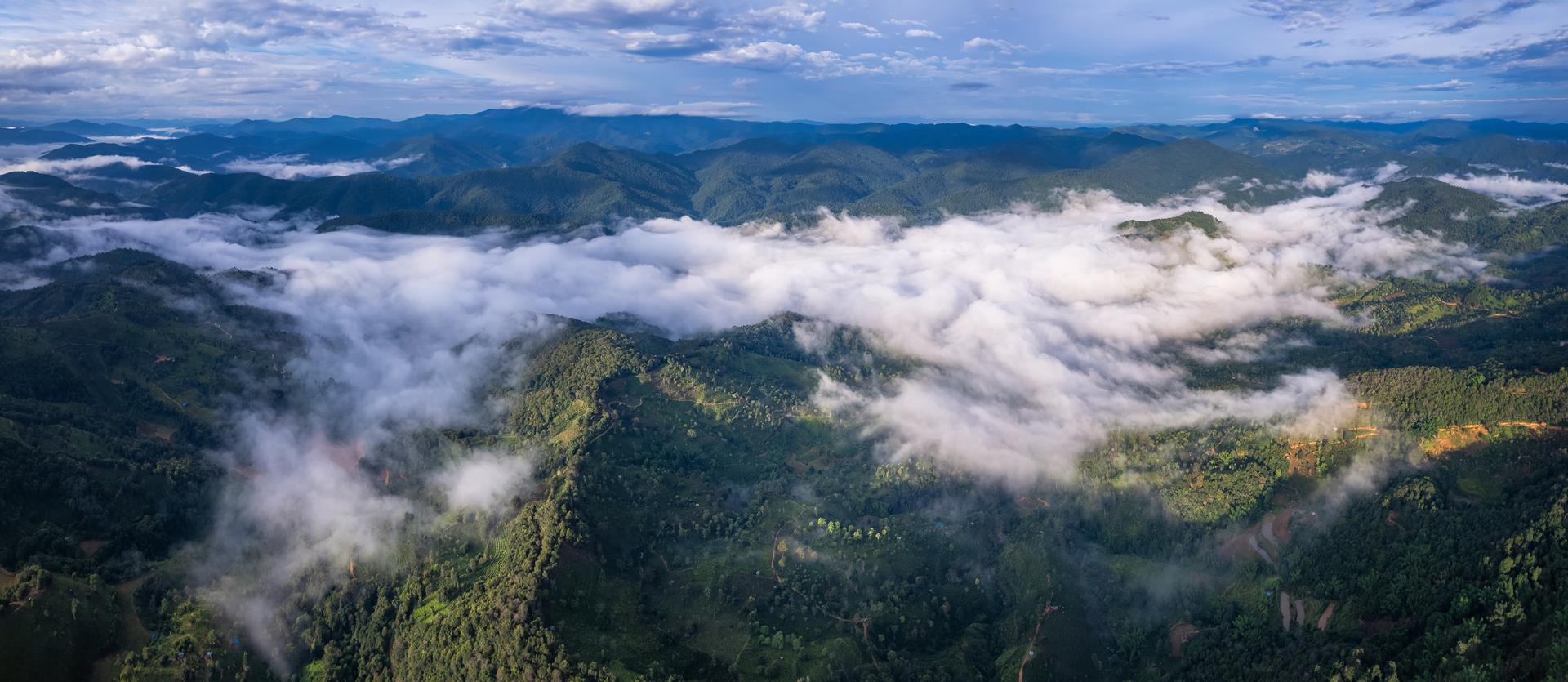

III. Jingmai Mountain in Summer: Cool Climate, Cultural Charm
During summer, Jingmai Mountain’s cool, forested slopes offer respite from the heat, with average temperatures of 24°C (75°F) between June and August, making it an ideal retreat. Walking along shaded forest paths, accompanied by the sound of birdsong, feels like stepping into a tranquil utopia. The mornings bring fresh, invigorating air, and the cool evenings ensure restful sleep.
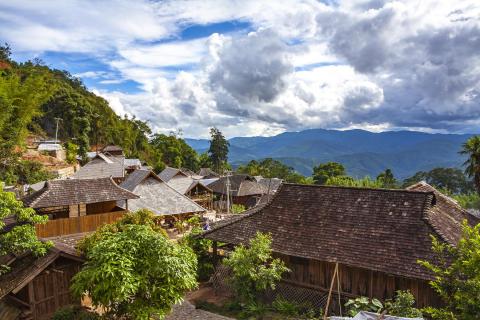
The summer rain adds a mystical touch to the ancient Wengji Village. Hidden amidst towering trees, the traditional stilted buildings emerge through the mist like an earthly fairyland.
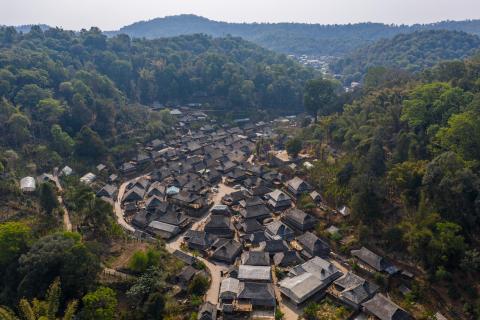
Beyond natural beauty, Jingmai Mountain’s vibrant cultural activities come alive in summer. Home to diverse ethnic groups, including the Dai, Lahu, and Blang peoples, the mountain hosts lively summer festivals such as the Blang “Sankang Festival” and the Dai Water-Splashing Festival. The valley echoes with joyful laughter and traditional songs, immersing visitors in rich cultural experiences.
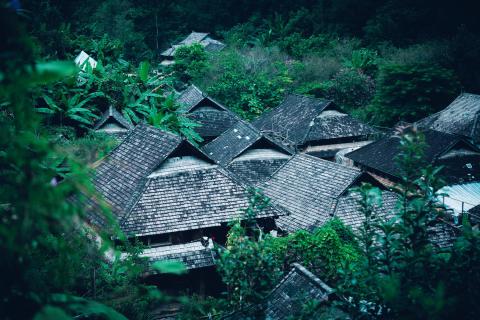
IV. Jingmai Mountain in Autumn: Tea and Clouds
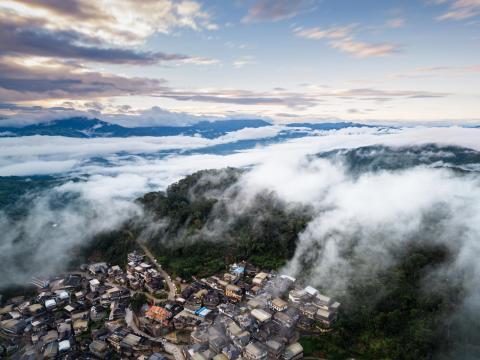
Autumn marks another harvest season on Jingmai Mountain. Tea leaves, glistening in the gentle autumn sunlight, exude vitality and life. Visitors can join local tea farmers to learn traditional tea-picking techniques and participate in the intricate processes of tea production, from frying to rolling—a hands-on experience of ancient craftsmanship.
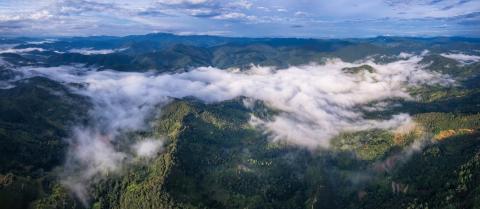
Autumn is also the best season to witness Jingmai’s breathtaking sea of clouds. At dawn, the mountain is enveloped in layers of mist, transforming it into a dreamlike sanctuary. From the summit, the rolling tea-covered hills disappear into the clouds. When sunlight pierces the mist, it illuminates the cloudscape, creating shimmering waves that resemble golden silk threads woven across the sky.
Walking through the tea gardens, surrounded by ancient trees and a sea of clouds, offers an unparalleled sense of tranquility and wonder.
V. Jingmai Mountain in Winter: Quiet Splendor
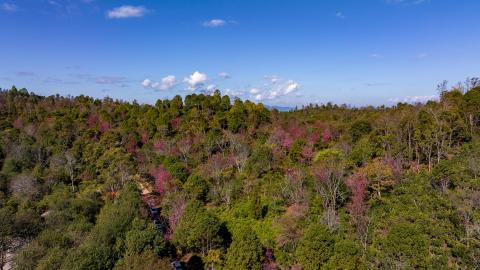
In winter, Jingmai Mountain exudes a serene charm. Clouds and mist envelop the landscape, often revealing the awe-inspiring phenomenon of “rainbow clouds,” seen as omens of good fortune by locals. When the clouds turn crimson at sunset, the mountain radiates an enchanting glow, captivating every visitor.
Amid the vast ancient tea forests, winter cherry trees bloom sporadically, their pink blossoms providing shade to the tea plants below. When in full bloom, the cherry blossoms resemble cascading clouds of pink, blending seamlessly with the lush greenery. As petals drift gently to the ground, it feels as though a soft, pink snow has fallen, creating a mesmerizing scene of natural beauty.
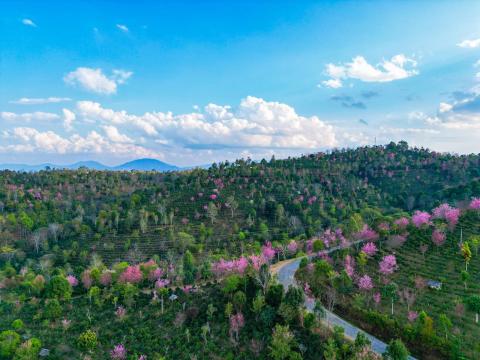
Whether it’s the majesty of morning clouds or the quiet elegance of cherry blossoms, Jingmai Mountain offers a unique escape. Here, the harmonious relationship between nature and humanity inspires profound peace, drawing travelers from far and wide to experience its timeless beauty.











